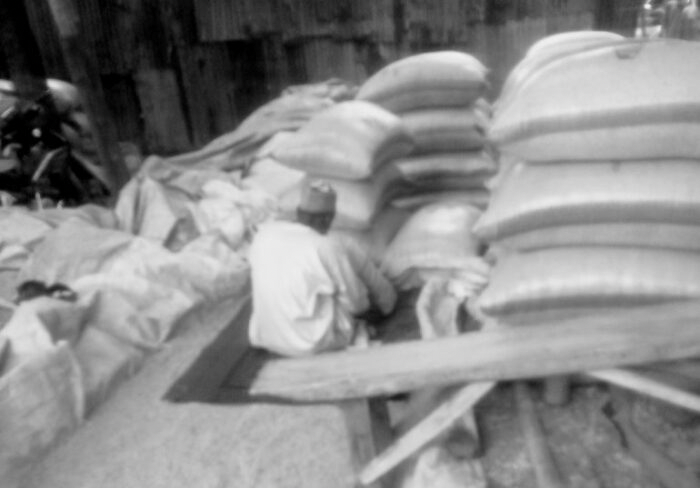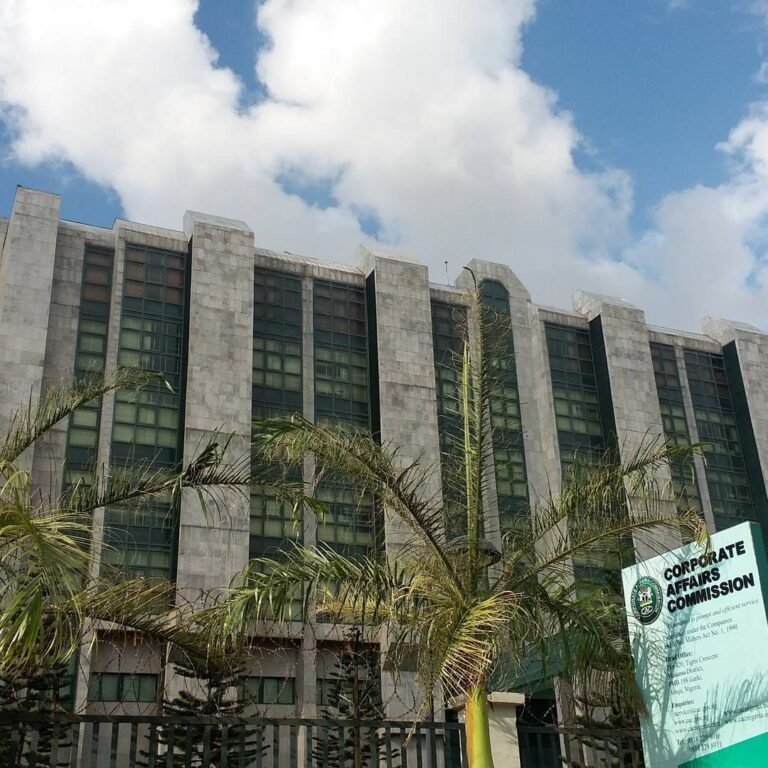The dissonant voices at Kasuwar Kara Market in Sokoto State echo through the ear. Amid the bustling row, Aliyu Umar, 28, routinely loads sacks of grains on his wheelbarrow to many stores. That is what he does to make ends meet and he has become a natural habitat of the market.
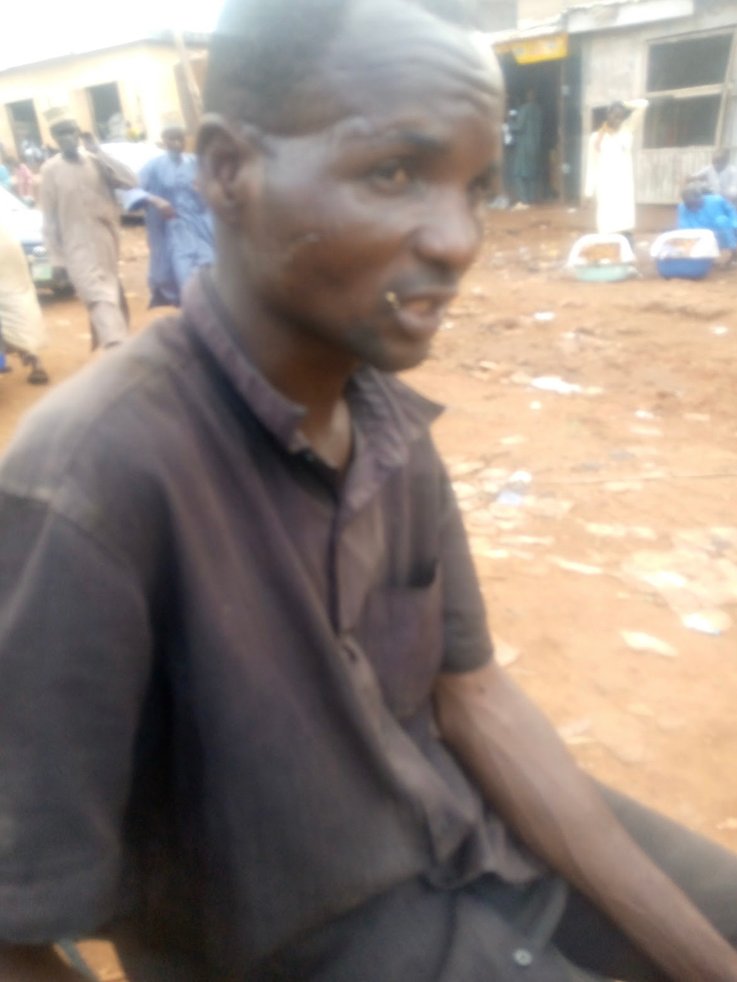
Aliyu seemed to know the market terrain like the back of his hand. Believing he wanted to buy 10 bags of rice and guinea corn cheaply, the wheelbarrow pusher would lead this reporter to where mischievous merchants hoard food items.
The food items in those stores have been hoarded for up to three years. Now, the traders are ready to sell them for exorbitant prices. They had purchased bags of rice and guinea corn cheaply some years ago. Rather than selling them immediately, they waited for a moment of hardship and high living costs before trading.
“Do you know Suna?” Aliyu asked the reporter. “It’s the name for an old guinea corn that is hoarded for a year. Let me take you to that shop. The man has many hoarded grains in his store,” he said.
Arriving at the first store, we purposefully requested ten bags of guinea corn and maize kept for up to three years. A large row of white and red guinea corn and maize were assembled inside the store. Mondi, the man we met at the store, didn’t hide the fact that he’s a notorious hoarder. Surprisingly, the price of his hidden grains of maize appeared to be more expensive than the newly harvested ones.
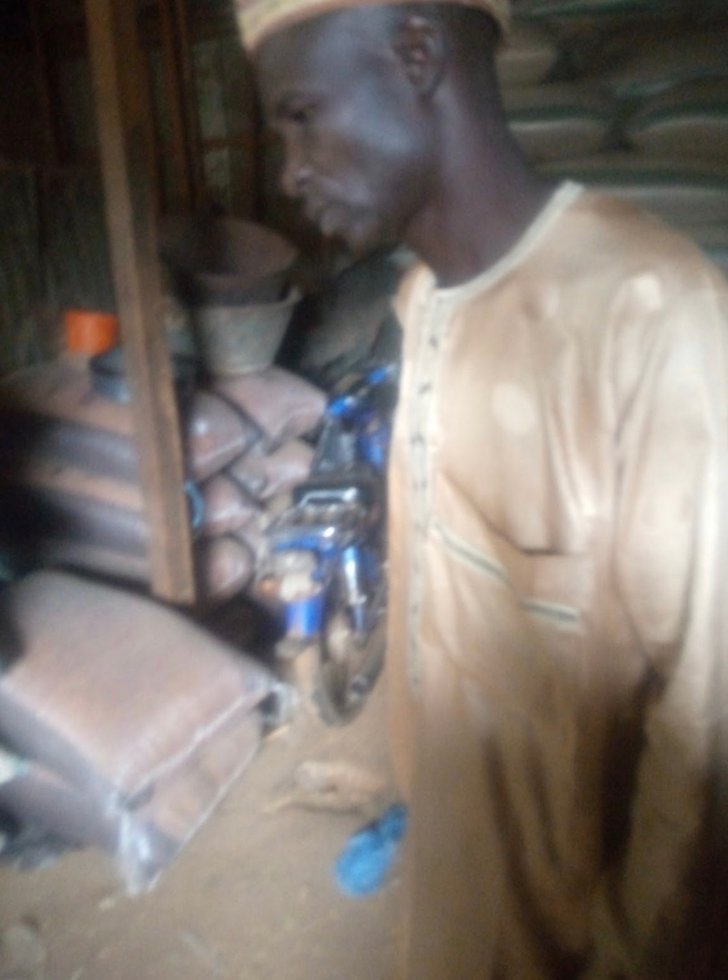
“The ones stored last year are N90,000. And the recently harvested ones are N62,000. There is no reduction because that’s how we sell it here,” Monti bragged. “Many of the guinea corn here are old; we stored them last year.”
When asked about the shocking difference in the price, Mondi gives a vague answer. He says that old grains are better.
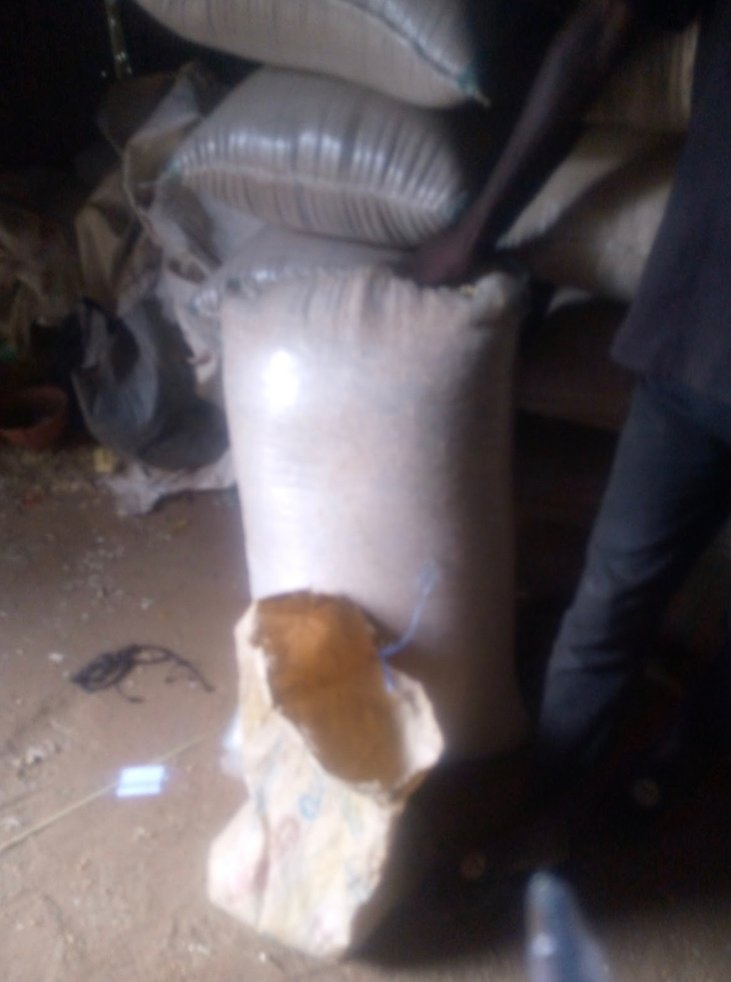
The long conversation with Mondi seemed to have frightened other merchants who had large sacks of grains hidden in their stores or circled their mats. Some consciously look away or stare at the reporter with suspicion. Interrogating their covert business puts them off balance when trying to engage them. Nearly all the merchants we met after Modi turned us away, and looked at the journalist with disdainful eyes that suggested they were not comfortable with his presence.
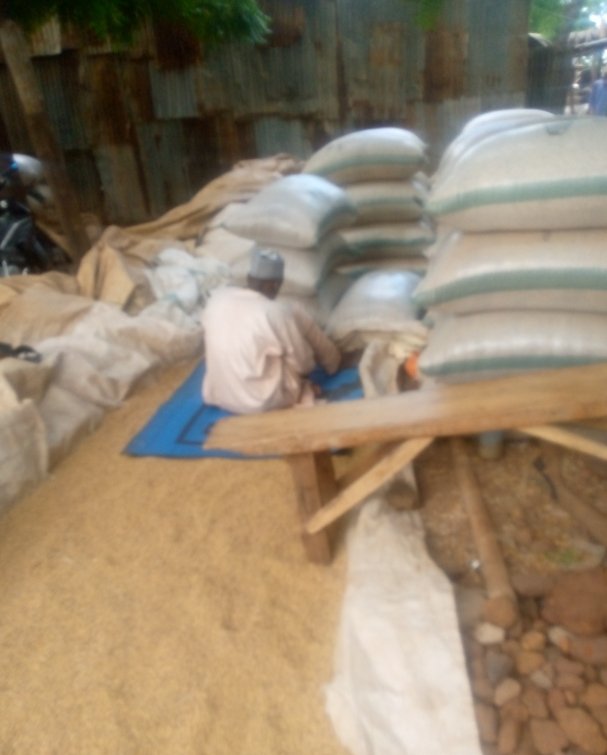
The hoarding escapades are beyond the corridors of many states. In northwestern Sokoto, many merchants are enmeshed in shady hoarding deals, using chemical elements to preserve food items such as grains.
Unfortunately, commoners are left with no option but to buy food items at exorbitant prices, making life difficult for them. Interestingly, Sokoto recently recorded a 50 per cent rise in food prices, making life unbearable for the downtrodden.
Nigeria is experiencing overwhelming inflation, an aftermath of the stringent economic policies of President Bola Tinubu. In June 2024, a report by the National Bureau of Statistics (NBS) showed the staggering increase in the inflation crisis in the country, standing at 33.40 per cent. The derailing effect of inflation triggers hardship and hunger in the country, as many ordinary Nigerians find it hard to afford food items. Additionally, a report by the World Food Programme (WFP) reveals that between October and December 2024, 25.1 million people are likely to experience acute food insecurity even during harvest season.
The obvious hunger crisis and food insecurity aggravate the worsening impact of widespread poverty. But all this doesn’t seem to bother food hoarders who prioritise profit over people’s well-being. In Sokoto, for instance, Sarkin Noma, a local merchant, is another notorious hoarder with bags of rice hidden in his stores for years.
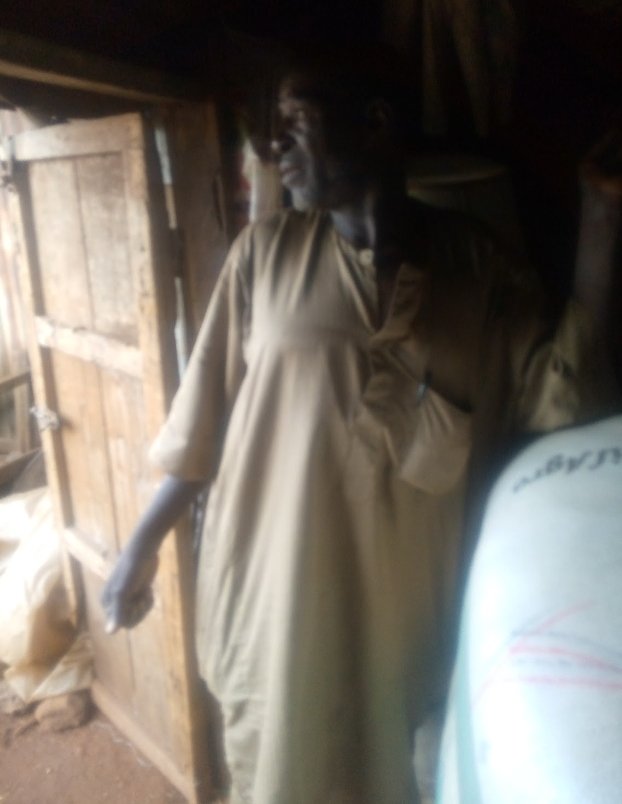
Sarkin Noma’s boy, who attended to this reporter, noted the hoarded bags of rice were more expensive than the newly harvested ones.
“These ones are for last year. They are good if you want them. We sell one bag at N160,000. To be sincere, we are selling it for N165,000. And the new one is N155,000,” the boy said. He remained silent when asked why the hoarded rice was more expensive.
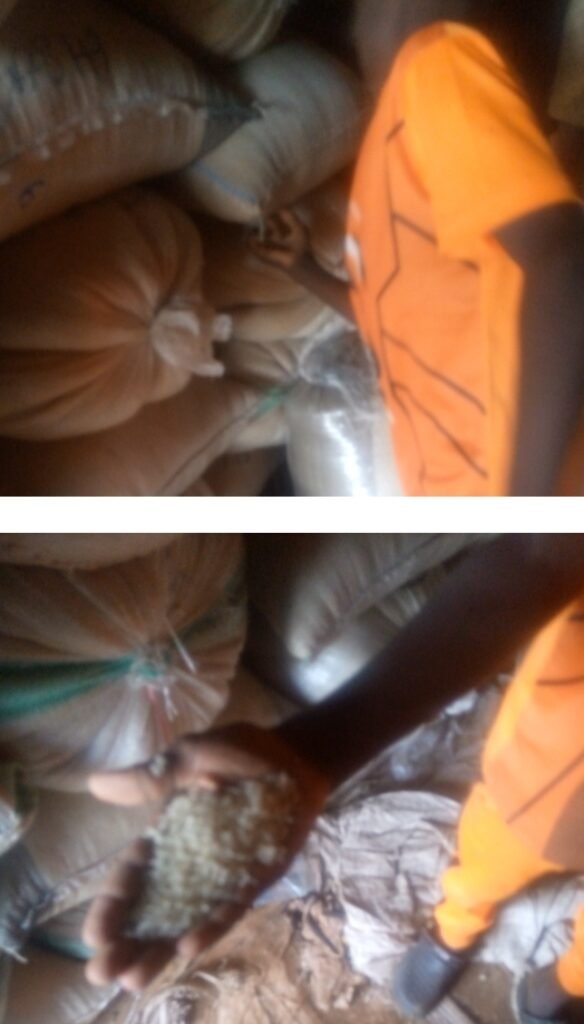
The practice of hoarding food items is commonplace in the state, with merchants taking pride in it in different markets we visited.
“If you want me to take you to the place where they are hoarding old rice, let’s go to Kasuwar Doya. They are there. I used to buy rice every day,” one man told this reporter.
The greedy hoarding practice found a bragging space online, too, with several food hoarders showing off on social media. Amid the inflation crisis that pervades the country, for instance, a video circulating on Facebook shows a merchant with sacks of rice piled up in a store, saying he has hoarded the grains for many years. He vowed to hide thousands of his bags of rice to make exorbitant profits in the future.

“I swear I have three hundred bags of rice. If the price doesn’t reach N150,000 I will not sell it. The ordinary Nigerian should go and die, very stupid and senseless people. I don’t care. Here the store is full of rice. Show it to them. If you didn’t insult me, may God forsake you,” he cursed in the video.
However, the Price Control Act prohibits the abuse of prices of goods in Nigeria and provides punishment for market offences which include hoarding and other related offences. Section 1(i) of the act states that if a person holds (controlled) commodities and refuses to sell the commodity in question while having it in stock, the individual shall be sentenced to imprisonment for not less than six months without the option of a fine.
The act also notes when a person is convicted regarding the above offences, the proceeds shall be paid into the Consolidated Revenue Fund of the federal government.
Audu Bello, an economics and finance expert at the Usmanu Danfodiyo University, Sokoto, condemned the idea of hoarding food items especially when there is an urgent need for food. With an insight into some solutions, he also stated its negative implications on the economy.
“It is wrong to buy goods which people are in need of, only to hold it until the price increases before you sell it. In this situation people need to have the conscience of their fellow humans and do what is right for the interest of their creator to be happy with them,” Bello advised.
“Hoarding is not a new thing in Nigeria, it has been in practice for many years. People hoard petrol, fertiliser, and foodstuffs in order to take advantage of higher prices,” he added, noting that, “many people are in a difficult situation because prices of goods keep increasing and their salary is fixed. So they cannot buy and take good care of themselves and their families.”
Suggesting ways and means to curb the practice of hoarding food items in the country, Bello said: “The issue can be taken to the National Assembly. They will make laws about it. The second option is for the government to have its own outlet that sells these goods at a cheaper price on a retail basis to individuals.”
The Federal Competition and Consumer Protection Commission (FCCPC) in Katsina was contacted for comments on the trending practice of food hoarding.
Othman Abdulkareem, the coordinator of the FCCPC’s northwest zonal office, said, “The federal government once directed us in March 2024 to do something. We had fact findings in Katsina and other areas. We covered six states including Sokoto, Kebbi, Zamfara, Kaduna and Jigawa.
“In fact, my head office even directed further that we should send our report to the federal government so that we can swing into action. We have a substantial law but implementation is the big problem.”
Abdulkareem lamented that even the government officials who made the law were aiding hoarding in the states, by going after the farmers during harvest to buy the items in large quantities to hide and make more money.
“The scenario has changed. What we understand is that these money bags, most especially the lawmakers of our constituencies, are the ones that often go to the farms to buy the yield so that they can now hoard it,” he said.
“Recently, we had a report where we also discovered that there were some people who were coming from the south, bringing a lot of money to buy and hide in order to create artificial hunger. We have made a retreat for that. The second retreat is that we are going to markets to sensitise and educate the people. This commission is doing all it can to sensitise the people.”
“We once submitted our report. But we realised that something is missing in the north. What is missing is that the marketing boards are the ones who buy from the farmers and put a subsidised price when there is a hike in prices. They will buy it so that the price will be cheaper. And people will get it at an affordable price.”
This report was produced as part of the Liberalist Centre’s Journalism for Liberty Fellowship project with funding support from Atlas Network.


